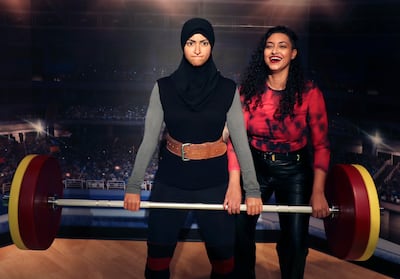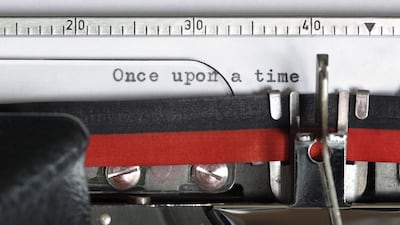More than six years ago, ISIS devastated the library at Iraq's University of Mosul, which housed a million books. Members of the terrorist group pulled them off the shelves and burned them. The titles included journals dating back to the second century.
The targeting of such literary treasures was an attack on everything that makes the cultures and societies of this region so rich and fascinating. Books catalogue not just our history but also our changing tastes and mores. ISIS sought to erase any story which did not fit its own sick and twisted narrative.
Since 2017, ISIS has been defeated and driven from much of the region, although its threat hangs over the Middle East. Much of the recent past has been overshadowed by the horrors they perpetrated.
Mosul, its university and the library are being restored and brought back to somewhere near its past vibrancy, as Iraq works with the international community and countries like the UAE. Last summer, British artist and author Edmund de Waal’s library of exile, including more than 2,000 titles, was donated to university.
Ultimately, the story of Mosul's library may be an inspiring tale of resilience and rebirth against the odds. That is worth acknowledging and gives hope that the darker times will always pass.
Alongside the globally reported news coverage, however, there is a stream of less well-known faces of the Middle East that must be seen. They do not always involve war and disaster. There is another side to the story.
In the ballrooms of a hotel in Dubai where book lovers have been flocking these past few days, a completely different picture emerges. There are the famous names and best-sellers, of course, but there are also themes altogether different when compared to the usual tropes about the Middle East.
Topics up for discussion with published authors and experts in the field include the careers and governments of the future, the creative economy, preserving the past, folklore and nostalgic culture. Literary criticism, stigma in art and erotic writing in Arabic literature are also on the agenda at the Emirates Airline Festival of Literature. A desert poetry slam was also part of the programme, which runs in English and Arabic until February 13.
Given the stereotypes and misunderstandings about the region and the people who live here, it might surprise to hear of real-life stories of three Emirati women: Amna Al Haddad, a pioneering weightlifter; Hamda Taryam, a groundbreaking drag racer, and Sahar Parham Al Awadhi, the first Emirati pastry chef in the region. There are many more examples that will confound preconceptions on show at the festival. Excitingly, these and other stories will likely be well told, far and wide, in the years to come.

Over the last decade and a half, the Dubai literature festival – along with other events and initiatives across the UAE – has helped nurture a modern scene for writers and storytellers who live here. The Emirates LitFest Writing Prize, for example, highlights unpublished novelists living in the UAE, Bahrain, Kuwait, Oman and Saudi Arabia. With future generations in mind, thousands of pupils in the UAE take part in the Oxford University Press Story Writing Competition. An anthology of the winning stories from the Voices of the Future Generation for the Middle East Region writing initiative was also launched at the festival this month.
This year, the Emirates Literature Foundation, which runs the festival, has also launched its own publishing house.
"It’s time that the world of publishing gave more attention internationally to the stories coming out of this region and our aim is to shine a spotlight on the talent that flourishes here,” said the foundation’s chief executive, Isobel Abulhoul.
Also, the foundation last week selected the inaugural cohort for its First Chapter ELF Seddiqi Writers' Fellowship. It is a global-level mentorship programme that includes regular workshops, meet-ups and talks, as well as one to one mentoring from published authors.
This last initiative has a personal resonance. I have been fortunate enough to be selected as one of the 10 fellows on the strength of my novel Muchafraid, which – with the help of the programme – I hope to take to publication one day.
The backdrop to the story, aimed at young adults, is inspired by Baghdad of the 13th century, but the tale follows the titular Arab adolescent as he tries to find his mother in the corrupt and dangerous Round City.
Muchafraid is looking to find his place in a complex and unforgiving world and, as he strives to be reunited with his mother, also discovers that he has more to offer the people of the city than just the symptoms of the anxious condition indicated by his name.
No doubt that the plot of this book falls into the genre of fantasy or speculative fiction, but it is an honour to have the chance to create characters with a connection to this region that can be read in 2022. Mine is just one, humble contribution to what will hopefully soon be a huge swell of examples of nuanced and multi-layered stories from the Middle East for you to one day pick up, open its pages and enjoy.


